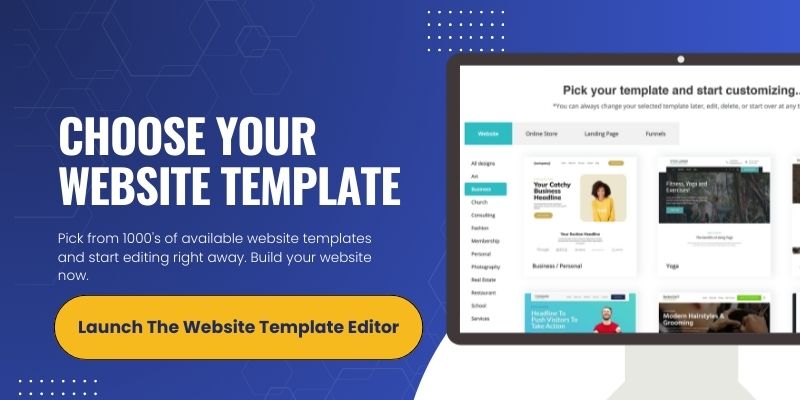Choose the Right Fantasy Sports Niche
Understanding Market Demand
First off, when I started exploring fantasy sports, I realized the importance of picking the right niche. It’s like fishing; you gotta know where the best spots are. Look at what’s buzzing in your community or on social media. For instance, during Football season, fantasy leagues pop up everywhere!
Check out trend reports, forums, and even social media discussions. You’ll find the topics people are passionate about. That’s where the opportunity lies!
Don’t just follow the crowd; gauge the competition too. If you see a crowded space with a ton of sites, maybe it’s time to pivot and find an under-served area that excites you!
Identifying Your Audience
Once you’ve picked a niche, turn your attention to your target audience. Who are they? Are they hardcore enthusiasts or casual players? Over the years, I found that different player types have different needs and interests.
For example, seasoned players might be looking for advanced tips and stats, while newbies might appreciate simple guides and tutorials. By understanding your audience, you can tailor your content and services precisely.
You can even create surveys or engage in social media to learn directly from potential users. Listening to them is key; it builds trust and community.
Researching Competitors
This part can be a bit of a downer, but it’s super important. Check out the competition in your selected niche. I remember crunching through endless sites to see what they offered, and trust me, it was insightful.
Look at their content, user engagement, and how they interact with their community. Take notes on what they’re doing well and where they’re lacking, and think about how you can fill that gap.
Your unique spin will set you apart! Maybe they don’t have a great blog or social media presence; that’s where you can shine.
Create Engaging Content
Blogging & Articles
Engaging content is the backbone of any fantasy sports website. I started by setting up a blog with articles hitting on varied aspects like player rankings, game strategies, and weekly predictions.
Don’t just write to fill space; write to connect. Using anecdotes and humor goes a long way. People like reading something that feels like a conversation, not a textbook.
Also, make it a point to include real stats and insights. Backing ideas with data shows authority and attracts more readers.
Interactive Tools & Features
Interactive tools are a game-changer! I implemented features like lineup optimizers and trade analyzers on my site which significantly boosted user engagement. They loved having something they could dive into.
Tools can range from simple calculators to full-fledged apps. The goal is to help users feel empowered in their fantasy decisions without overwhelming them with fluff.
Remember, users stay longer when they’re engaged; think about how to keep them clicking!
Visual Content & Videos
Don’t underestimate the power of visuals! I started creating video content that explained strategies or reviewed player performances. It was a huge hit!
Combining articles with video tutorials can bridge the gap for users who prefer learning visually. Plus, it adds a personal touch that resonates well with the audience.
Engaging visuals grab attention, so investing in quality graphics or video editing can really pay off.
Develop User Community
Forums & Discussion Boards
Building a community around your site is crucial. I hosted forums where users could talk shop, share insights, and engage with each other. It’s a great way to create a sense of belonging.
Make sure to monitor these boards and participate actively. It shows your audience you care about their input and builds loyalty.
Plus, user-generated content enhances your site too; it’s like having an endless supply of new ideas and discussions.
Social Media Engagement
Our friends at social media are powerful allies. Use platforms like Twitter and Instagram to build your brand and engage with your audience. I often run polls and share user generated content to create a buzz.
Leverage these platforms to announce contests which can incentivize sharing and boost your reach. And don’t just post – engage! Respond to comments, answer questions and keep the convo flowing.
This not only makes your audience feel valued, but it also enhances your visibility and reach.
Live Events & Contests
Hosting live events or contests can truly elevate your community. I’ve found that these events excite users and get them interacting in real-time!
Consider a weekly live Q&A session, or even fun in-platform competitions with prizes. It creates buzz, excitement, and gives your users something to look forward to.
This not only keeps your existing users engaged but often attracts new ones, who are curious about the fun!
Optimize for Mobile Accessibility
Responsive Website Design
These days, a lot of traffic comes from mobile devices. Ensure that your website design is responsive. I cannot stress enough how imperative this is! A website that looks great on mobile can significantly boost user satisfaction.
Test your site across various devices to see how it holds up. Make adjustments so that everything is easy to read and navigate without having to squint!
Remember, first impressions matter; a clunky mobile site will send users packing!
Simple Navigation
Your users won’t stick around if they’re fumbling to find what they’re looking for. I’ve learned that creating an intuitive navigation system is essential. Keep it clear, categorized, and uncomplicated.
Include search bars and clear CTAs (Calls to Action). If users can easily find what they need, they’re more likely to stick around for more!
Every hiccup in navigation could cost you a potential long-term user. So, keep it seamless!
Fast Load Times
No one likes waiting, especially in the fast-paced world of fantasy sports! Optimize your site for fast load times; I always check my stats regularly to ensure users aren’t getting frustrated.
This includes optimizing images, scripts, and servers. Tools like Google PageSpeed Insights can be super helpful in identifying bottlenecks!
Speedy sites mean happy users, and that means they’ll come back time and again!
Monetization Strategies
Affiliate Marketing
After I set up my site and built a community, it was time to think about monetization. Affiliate marketing has been one of the most effective methods for me. By partnering with fantasy products or services, I could earn from referrals.
Choose affiliates that resonate with your audience. For instance, if your users love fantasy books, partner with relevant book platforms!
The key is to be genuine with your recommendations. If your audience trusts you, they’ll be more inclined to click through and make purchases.
Sponsored Content
As my site grew, I found that brands were interested in partnering for sponsored posts. This involves writing content that promotes a company’s products while ensuring it fits in with the overall theme of my site.
It’s important to keep it relevant to your audience, as poorly executed sponsored content can turn users away. Make sure to disclose sponsorships—transparency builds trust!
When done right, it’s a win-win; you get compensated while providing value to your readers!
Your Own Products or Services
Lastly, don’t forget about creating your own products or services. I ventured into creating eBooks, courses, and even merchandise that emphasize my brand and knowledge.
Think about what skills or knowledge you might have to share with your audience. How can you turn that into tangible products?
This avenue not only diversifies income but also strengthens your brand identity. You’re not just a content creator; you’re a trusted source!
FAQ
What should I focus on when starting a fantasy sports website?
Start with picking the right niche and understanding your audience. Know what sparks their interest and tailor content accordingly.
How can I engage my audience effectively?
Use interactive tools, create valuable content, and foster a community. Engage with your users on social media and through forums.
What type of content works best for fantasy sports websites?
Mix it up! Use blog posts, videos, interactive features, and even live content to keep your readers engaged and coming back.
How can I monetize my fantasy sports website?
You can explore affiliate marketing, sponsored content, or even launch your own products like eBooks or courses tailored to your audience.
Why is mobile optimization important for my website?
Most of today’s users browse on mobile devices. A responsive and fast site ensures users have a pleasant experience, encouraging them to return.

